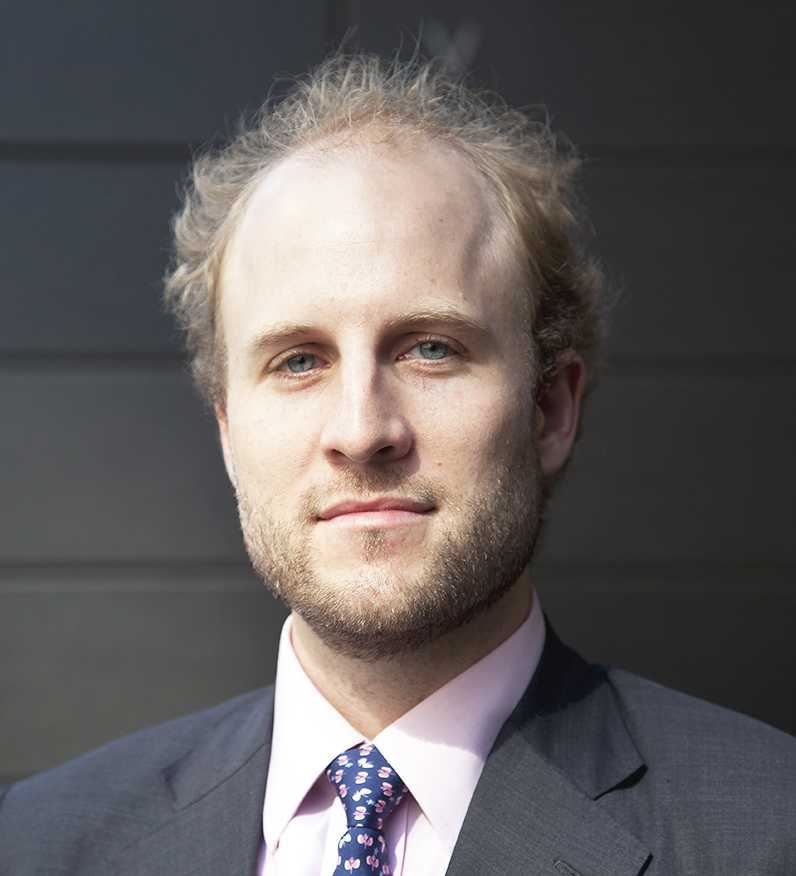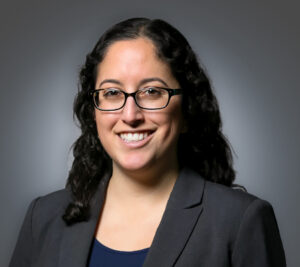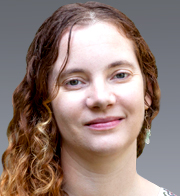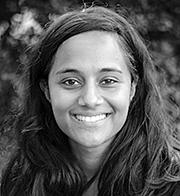This website uses cookies
We use cookies to ensure that we give you the best experience on our website. If you continue to use this site we will assume that you are happy with it.
Jump to:
Asylum and Convention Against Torture (CAT) Appellate Clinic
Ian M. Kysel, Visiting Assistant Clinical Professor of Law

Ian Kysel
Kysel teaches the Asylum and CAT Appellate Clinic. Since joining the faculty in 2019, he has supervised more than a dozen students in a mix of immigration matters and litigation projects for the International Refugee Assistance Project and the United Nations High Commissioner for Refugees. Among other victories, his students prevailed in a rare motion to dismiss a DHS appeal to the Board of Immigration Appeals, which they then leveraged to secure release of their client and, separately, their client’s spouse, from detention.
Before and after the pandemic, Kysel has maintained an active amicus practice. In the spring, with co-counsel, he filed an amicus brief in the 9th Circuit addressing international standards governing the detention of migrant children in Flores v. Barr, on behalf of more than 100 human rights experts, and another in D.D.C. addressing the public health implications of the pandemic in family immigration detention facilities in O.M.G. v. Wolf, on behalf of a group of public health experts.
Kysel has engaged on international migration issues through Cornell Law’s Migration and Human Rights Program and the International Migrants Bill of Rights (IMBR) Initiative, which he directs. Last December, the IMBR Initiative concluded a five-year partnership with the Inter-American Commission on Human Rights when it approved the Inter-American Principles on the Human Rights of all Migrants, Refugees, Stateless Persons and Victims of Human Trafficking, the most comprehensive articulation of the rights of all migrants ever to be adopted by an international body. The initiative also colaunched an International Migration Law learning program for NGO staff working on migration around the world. This spring, Kysel collaborated with colleagues to draft Human mobility and human rights in the COVID-19 pandemic: Principles of protection for migrants, refugees, and other displaced persons, which has been endorsed by more than 1,000 experts worldwide and cited by the United Nations Secretary-General.
Kysel has recently published or has publications forthcoming in International Migration, the International Journal of Refugee Law, the American Journal of International Law Unbound, and the American Journal of Public Health. He has also written for The New Humanitarian, the United Nations Network on Migration blog and the Kaldor Centre for International Refugee Law’s COVID-19 Watch blog.
In the past year, Kysel gave several virtual talks or panel presentations, including for the American Bar Association, and discussed his work on the podcast Tempest Tossed. Last spring, Kysel was elected co-chair of the American Society of International Law International Refugee Law Interest Group, joined the board of Ithaca City of Asylum, and became a trustee of the Global Legal Action Network. This fall, he was named an inaugural Global Public Voices Fellow.
Public Presentations:
Human Rights and Migration, September 2020, https://zolberginstitute.org/migration-course/ [FREE BUT REGISTRATION REQUIRED]
International Migration Law learning program, (June, July, September, October 2020 sessions), https://csactioncommittee.org/iml-learning/
DACA and International Human Rights: The Quest for Immigration Justice, August 2020, https://www.americanbar.org/events-cle/ecd/ondemand/402638673/ [PAYWALLED CLE]
Health and Immigration Detention Amid the COVID-19 Pandemic, June 2020, https://www.youtube.com/watch?v=huidbZLS1Uc
Immigration Short Takes: Mobility in the Time of COVID-19, May 2020, https://zolberginstitute.org/immigration-short-takes/
COVID-19 and the rights of migrants, March 2020, https://csactioncommittee.org/webinars/covid-19-and-rights-webinar/
Keir Weyble, Clinical Professor of Law and Director of Death Penalty Litigation
Sheri Johnson, James and Mark Flanagan Professor of Law
On September 4, 2020, a Mississippi trial judge dismissed all charges against longtime Capital Punishment Clinic client Curtis Flowers. Mr. Flowers had been convicted and sentenced to death four times across six trials in connection with a 1996 quadruple homicide in Winona, MS, and spent most of the ensuing 23 years in jail or on Mississippi’s death row. He became a client of the Capital Punishment Clinic in 2011 when Professor Sheri Johnson and Clinical Professor Keir Weyble agreed to handle his appeal of the convictions and death sentence imposed after his sixth trial. Over the next eight years, Johnson, Weyble, and well over a dozen Cornell law students litigated two full rounds of appeals to the Mississippi Supreme Court and the Supreme Court of the United States. Along the way, they became convinced not only that Mr. Flowers’ trial had been riddled with serious constitutional errors, but also that he was clearly innocent of the charges against him.
The clinic’s appellate work culminated in Flowers v. Mississippi, 139 S.Ct. 2228 (2019), in which the Supreme Court (7-2) reversed Mr. Flowers’ convictions on the ground that the trial prosecutor had engaged race discrimination during jury selection. Following that decision, Johnson and Weyble joined forces with a larger team of lawyers assembled to oppose any effort by the State of Mississippi to try or convict Mr. Flowers once again. After a months-long independent review, Mississippi authorities acknowledged what others familiar with the case — including thousands of listeners of the popular In the Dark podcast — had long known: that there simply is no reliable evidence to support the charges against Mr. Flowers. In the wake of that determination, Johnson and Weyble were on hand (virtually) to celebrate with their client and the team when the order finally dismissing the charges and setting him free was announced.
Farmworker Legal Assistance Clinic (FLAC)
Briana Beltran, Lecturer
Beth Lyon, Clinical Professor of Law, Associate Dean for Experiential Education and Clinical Program Director

Beth Lyon

Briana Beltran
Despite the transition to online learning in March, FLAC has maintained a more active docket than ever in 2020. We continued to help workers in the United States and abroad who have been exploited in the workplace and to represent migrant farmworker children and youth in state court guardianship proceedings, pursuing immigration protections for our clients that can provide a path to permanent status in the United States. During the summer, we had a larger than regular cohort of student interns, at the law school, college, and high school level, and collaborated with Prof. Jaclyn Kelley-Widmer in supervising students on immigration cases.In November 2019, Cornell University received the C. Peter Magrath Community Engagement Scholarship Award from the Association of Public Land Grant Universities for its interdisciplinary farmworker research and collaboration initiatives.
Farmworker Clinic Publications and Interventions
In September 2020, Justice in Motion released The Case for Transparency: Using Data to Combat Human Trafficking Under Temporary Foreign Worker Visas with editing support from the Farmworker Legal Assistance Clinic.
On August 31, 2020, Dena Robinson and Beth Lyon filed an amicus brief with the U.S. Court of Appeals for the Third Circuit discussing the impact of applicant trauma and judicial implicit bias in asylum adjudication.
On March 30, 2020, professors Ian Kysel, Beth Lyon, Chantal Thomas, and others filed an amicus brief with the U.S. District Court for the District of Columbia, supporting release of families held in Immigration and Customs Enforcement detention centers.
Beth Lyon, “New York State Addresses a Jim Crow-Era Legacy: The 2019 Farm Laborers Fair Labor Practices Act,” Labor and Employment 48, no. 1, 8 (fall 2019).
Beth Lyon, with Jaclyn Kelley-Widmer and Stephen Yale-Loehr, What Every (Non-Immigration) Lawyer Needs to Know About Immigration Law, in Is America Fulfilling Its Promise: Safeguarding Legal Protections for Immigrants (Scott Fine and Rose Mary Bailly eds., New York State Bar Association, 2019).
Farmworker Clinic Presentations
October 2020, Lyon and Pranoto Iskandar gave a lecture titled Conceptualizing Migrant Farmworker Rights in Asia for the Cornell Migrations Seminar Series.
September 2020, Beltran and Lyon gave a guest lecture on farmworkers as part of the collaborative course Food, Law, and COVID-19 sponsored by the LL.M. Program in Agricultural and Food Law at the University of Arkansas School of Law.
September 2020, Lyon presented for the LatCrit, Inc./SALT Faculty Development Workshop.
February 2020, Beltran spoke at the Rebellious Lawyering Conference at Yale Law School, participating on a panel titled “Systemic Violence, Rights Abuses, and Animal Agriculture.”
January 2020, Lyon presented “Farmworker Protection: A Failed Postcolonial Promise,” for the Bennett Law Faculty in Greater Noida, India.
December 2019, Lyon presented “Litigating and Building Access to Justice Networks for UCs in Fora and Regions Unfamiliar with UC Needs” for the American Bar Association/Kids in Need of Defense Unaccompanied Children Conference in Houston.
November 2019, Lyon presented “Temporary Foreign Worker Programs through an International Law Lens” at the Metropolis conference “Beyond Borders: Managing Migration in North America,” in San Diego.
October 2019, Lyon presented “Language Access to Justice: Guatemalan and U.S. Contexts” for the Washington State Summit on Language Access.
Cortelyou Kenney, Visiting Assistant Clinical Professor and Associate Director, First Amendment Clinic

Cortelyou Kenney
The First Amendment Clinic has grown over the past year, adding two new staff members: Heather Murray and Ava Lubell. This has allowed them to add an advanced seminar for returning students, upping total enrollment to approximately 15 students per semester. It has also allowed them to increase their docket size.
Over the summer, the clinic successfully represented the New York Times in federal court against the Center for Disease Control. After filing suit on the Times‘ behalf in the Southern District of New York, the clinic helped secure the release of previously unpublished data demonstrating racial disparities in the effects of COVID-19. The data was featured in a front-page story in the Times and on an episode of the Times’ well-known podcast, The Daily.
In June, the clinic filed suit on behalf of another nonprofit news site, Documented, as part of the clinic’s Local Journalism Project. The suit seeks wage theft-related records from the New York State Department of Labor. Documented plans to use the requested documents to create an interactive database of companies in New York that have stolen wages from employees. That database would be accessible both to low-wage workers at particular risk of experiencing wage theft and to those who support a living wage to determine which companies to avoid working for or patronizing.
The clinic is currently representing The Geneva Believer, a non-profit governmental watchdog blog based in Geneva, New York. The blog was sued by a local construction company over coverage of the company’s lucrative real estate deals with the City of Geneva. In the spring, the clinic defeated a request for a Temporary Restraining Order which would have required The Believer to remove the articles from its website pending resolution of the suit. On August 6, 2020, the clinic recently filed an anti-SLAPP motion to have the case dismissed and will give oral argument on the motion in December.
On October 19, 2020, the clinic filed another suit on behalf of Justice 360, a non-profit focused on death penalty defense. The suit argues that South Carolina’s death penalty secrecy statute violates the professional speech rights of capital defense attorneys. The statute has been interpreted as prohibiting disclosure of the identities of individuals and companies involved in lethal injection executions. The suit argues that this prohibition prevents capital defense attorneys from meaningfully informing their clients and the court about issues relevant to death penalty defense. As a result, the attorneys are unconstitutionally restricted from fully and completely representing their clients.
Another Local Journalism Project matter the clinic is currently undertaking involves access to court records related to potential conflicts of interest. The clinic represents nonprofit outlet The Batavian, which seeks a transcript from part of family court proceeding dealing with a recusal motion against a prosecutor who also served part-time as a judge. The prosecutor has since been elected to a full-time judgeship. In October, the clinic gave oral argument in the matter and anticipates a decision in the near future.
The clinic is also involved in several nonlitigation projects. On October 21, the clinic published a comprehensive analysis of the Trump White House’s unprecedented use of nondisclosure agreements (NDAs). The report was published one week after the Department of Justice enforced a White House NDA for the first time, bringing a civil suit in federal court against a former unpaid aide to First Lady Melania Trump. The report concludes that the NDAs violate the First Amendment in a wide range of potential applications.
The clinic is also helping to spearhead an initiative of the Free Expression Legal Network, a coalition of clinics and media advocacy groups around the country, related to the treatment of journalists at protests. The coalition has compiled policies from cities and police departments nationwide and is in the process of synthesizing them in a way that will assist localities in preventing First Amendment abuses against journalists covering demonstrations.
Videos/Public Presentations:
The Freedom of Information Act in the Age of the Pandemic, Cortelyou Kenney (with Alexandra Perloff-Giles), August 28, 2020, https://www.ecornell.com/keynotes/overview/K082820d/
An Introduction to Defamation Law: Foundational Principles and Current Developments, Tyler Valeska, August 29, 2020, https://www.ecornell.com/keynotes/overview/K082920/
The Religion Clauses in the Age of the Pandemic, Nelson Tebbe (Clinic Advisory Committee member), August 28, 2020, https://www.ecornell.com/keynotes/overview/K082820c/
Fundamentals of the First Amendment: Speech, Press, and Assembly, Michael C. Dorf (Clinic Advisory Committee Member), August 28, 2020, https://www.ecornell.com/keynotes/overview/K082820a/
1L Immigration Law and Advocacy Clinic
Jaclyn Kelley-Widmer, Clinical Professor of Law (Lawyering) and Director of the 1L Immigration Law and Advocacy Clinic

Jaclyn Kelley-Widmer
Professor Kelley-Widmer launched the inaugural semester of the 1L Immigration Law and Advocacy Clinic in spring 2020. She supervised six first-year students in reviewing immigration applications for Cornell students, faculty, and staff, including DACA renewals, asylum, and naturalization. In spring 2020, the clinic assisted 15 clients from 11 different countries, from Ethiopia to Ecuador to Iran. In addition, students presented public-facing community advocacy projects on emerging legal issues to diverse audiences including a webinar on the new public charge rule which was attended by approximately 1,000 participants who tuned in from around the nation (that presentation is available here). Law students also presented to the Cornell Police Department and created a resource list for undocumented students during the pandemic.
Over the summer, Professor Kelley-Widmer moonlighted in the Farmworker Legal Assistance Clinic, where she supervised students’ work on cases to pursue immigration relief for farmworkers who suffered labor trafficking or domestic abuse. She also presented a webinar on the impact of the coronavirus on immigration with Professor Yale-Loehr and gave an undocu-ally presentation to Cornell staff. Currently, she continues to work on DACA issues along with several law students, and she will run the clinic again in spring 2021.
Professor Kelley-Widmer recently published a coauthored scholarly article, “A Step Too Far: Matter of A-B-, ‘Particular Social Group,’ and Chevron” in the Cornell Journal of Law and Public Policy. She also published op-eds on the impact of coronavirus on immigrants in the Washington Post and on the DACA case in the Supreme Court in the Regulatory Review, Bloomberg Law, and Law360. She was quoted in numerous articles on DACA in various outlets, including the LA Times and MSN, as well as in an article on Border Patrol activities in USA Today.
Videos/Public Presentations:
Immigrants, Public Benefits, and COVID-19, April 13, 2020
The Impact of the Coronavirus Crisis on Immigrants and Immigration, July 30, 2020
International Human Rights: Litigation and Advocacy Clinic
Sandra Babcock, Clinical Professor of Law, Faculty Director of the Center on the Death Penalty Worldwide, and Director of the International Human Rights: Litigation and Advocacy Clinic

Sandra Babcock
During the COVID pandemic, clinic students have connected with our Tanzanian partners via Zoom, and have kept their clients updated about their casework by letters hand-delivered to the prison by our Tanzanian colleagues. Clinic students also created an info-comic to advise Tanzanian prisoners about their right to file petitions before the African Court. The info-comic is now being hand delivered to hundreds of prisoners around the country.
Given the challenges of international travel during the pandemic, the clinic has turned to domestic human rights advocacy in the cases of women facing the death penalty in the United States. Students are drafting petitions to the Inter-American Commission on Human Rights seeking stays of execution as well as remedies for human rights violations committed in their cases.
As faculty director for the Cornell Center on the Death Penalty Worldwide, Professor Babcock participated in several events this year relating to the Center’s Alice Project. With support from the Einaudi Center, she and her colleagues at the Center (Delphine Lourtau, Laura Douglas, Zohra Ahmed, and Randi Kepecs), organized a strategic convening on women facing extreme punishments in the United States. The convening brought together gender rights advocates, prison abolitionists, death penalty opponents, sentencing reform advocates, and scholars working in these fields. The group has adopted a national platform for a movement to focus on gender bias in extreme sentencing through an intersectional lens, with the ultimate aim of reducing extreme sentences for women.
On October 9, 2020, in connection with World Day Against the Death Penalty, the Cornell Center on the Death Penalty Worldwide organized a panel presentation titled “Defending the Condemned: Building Solidarity Across Borders.” The panel featured Professor Babcock, Center Director Delphine Lourtau, Research Associate Charlotte Andrews-Briscoe, and several African graduates of the Center’s Makwanyane Institute for capital defenders, who discussed the challenges they face in their work and the satisfaction it brings them.
In other welcome news, three young Cameroonian women were just acquitted of capital charges in Cameroon following a years-long collaboration between the Center and our brilliant Cameroonian colleague, lawyer Nestor Toko. Center Executive Director Delphine Lourtau spearheaded this collaboration with the support of Anna Kiefer (LLM ’16), Ariane Jacoberger (LLM ’19), Zohra Ahmed and Research and Training Director Laura Douglas, assisting Mr. Toko through various stages of appeal and retrial.
In late 2019, Professor Babcock published two book chapters: “Deciding Who Lives and Who Dies: Eligibility for Capital Punishment Under National and International Law,” and “An Unfair Fight for Justice: Legal Representation of Persons Facing the Death Penalty,” in Comparative Capital Punishment Law, edited by Carol Steiker and Jordan Steiker, (Edward Elgar, 2019).
In summer 2020, Professor Babcock was named a Kaplan Family Distinguished Faculty Fellow. The fellowship recognizes her significant impact on graduate education at Cornell by involving her students in challenging service-learning programs. The fellowship will support a project on gender-based violence and the death penalty in Tanzania.
Zohra Ahmed, Clinical Teaching Fellow with the Center on the Death Penalty Worldwide. She coteaches the international human rights clinic with Professor Sandra Babcock.

Zohra Ahmed
In the spring of 2020, Zohra Ahmed and Clinical Professor Sandra Babcock developed and taught a brand-new seminar titled Struggles for Liberation and Equality: Human Rights in the Twenty-first Century. The seminar invited students to examine some of the neglected areas of human rights law through the lens of social movements. Students moved through discussions on the human rights implications of the Puerto Rican debt crisis to efforts to seek reparations for U.S. slavery. At the end of the 2019–20 academic year, she was honored to receive Cornell Law’s Anne Lukingbeal Award for Service to Women Students.
In the spring, Zohra also became a strategic advisor to the Community Justice Exchange, home of the National Bail Fund Network, where she supports efforts around the country to end criminalization, detention and surveillance.
This summer, the organization she cofounded, Court Watch NYC, issued its report on the implementation of New York State’s short-lived bail reforms, which went into effect in January 2020, but were repealed months later after backlash from law enforcement. The report, “Same Game Different Rules,” distills court watchers’ observations of almost 1,000 arraignments across Brooklyn, Queens, and Manhattan in the first 100 days of 2020. The report is the first of its kind to identify the benefits and drawbacks of New York State’s brief moment of progressive bail laws.
This fall, the International Human Rights Clinic also forged a partnership with Survived and Punished, a grassroots prison abolition organization dedicated to freeing criminalized survivors of gender violence held in prisons in New York. Currently, clinic students are working to support Survived and Punished’s #FreeThemNY campaign, calling on Governor Cuomo to immediately use his clemency powers to free people from prisons.
Charlotte Andrews-Briscoe is a new research associate at the Cornell Center for the Death Penalty Worldwide. She has a professional and academic background in criminal justice reform. She helped run a legal clinic in Luzira Upper Prison, the highest security prison in Uganda, in her role as legal officer with Justice Defenders. In that capacity, she engaged in criminal defense work (facilitating, for example, the release or transfer of more than forty juvenile clients), including death penalty defense. Previously, Charlotte acted as an international law clerk for the chief justice of the Supreme Court of Namibia. As a mini-pupil at Blackstone Chambers, Charlotte also assisted with oral submissions to the U.K. Supreme Court in a case regarding solitary confinement. She holds an LL.B. from Queen Mary University of London, and an LL.M. from Harvard Law School, where she was the British law recipient of the Frank Knox Memorial Fellowship.
Laura Douglas recently joined the Cornell Center for the Death Penalty Worldwide as research and training director. Laura received her J.D. from Stanford in 2017. After graduating, she joined the Metropolitan Public Defender in Portland, Oregon, then worked at the office of the prosecution for the ICC in The Hague. Most recently, she completed a clerkship in the U.S. District Court for Puerto Rico. Laura speaks fluent French, which serves her well in spearheading the center’s Makwanyane Institute for francophone African lawyers.
International Human Rights: Policy Advocacy Clinic
Sital Kalantry, Clinical Professor of Law, Founder and Faculty Director, International Human Rights: Policy Advocacy Clinic

Sital Kalantry
Professor Kalantry published a number of articles, a book chapter, and a report. She also delivered numerous lectures, including a commencement speech for Jindal Global Law School and a talk on the rights of indigenous peoples in voluntary isolation. Her article titled “How Stereotypes about Indians are Used to Restrict Abortion,” appeared in the National Law School of India Review. She published a book chapter on how the Supreme Court in India is advancing its own agenda on surrogacy laws without consulting surrogates in a book in honor of Upendra Baxi published by Cambridge University Press. In a talk on Citizenship and Human Rights in India, Professor Kalantry and her students in the clinic discussed their project on citizenship in Assam, India. India recently gained world-wide attention for restricting citizenship rights of certain groups of people, particularly Muslim. Over 200,000 people in the state of Assam are at risk of being rendered stateless. A case in which her clinic filed an amicus brief was advanced to the Inter-American Court of Human Rights. This is the first case on behalf of indigenous peoples who are in voluntary isolation from the Western world. She had an op-ed in the Hindustan Times arguing that India should accede to the U.N. refugee convention and an article in the International Bar Association’s Family Law Committee’s Newsletter. She also copublished a report with the Weill Cornell Medical School on the medical and mental health implications of gestational surrogacy. This report was submitted to the New York State legislatures as well as other places.
Angela Cornell, Clinical Professor of Law and Director, Labor Law Clinic

Angela Cornell
The Labor Law Clinic has celebrated recent successes in its representation of terminated workers. We have negotiated more than $260,000 in settlements for workers so far this year. Our recent successes include a nurse who was terminated for protected concerted activity, and an African-American worker who was terminated unjustly. We have had two cases with allegations of race discrimination, along with other claims. We also have our first case involving a worker terminated for COVID-related activity. He was terminated for trying to get his employer to follow mask and social distancing policies inside the work place. Workers are increasingly facing retaliation and termination for COVID-related workplace health and safety initiatives. Students are pursuing two legal claims on his behalf.
In addition to the domestic labor cases, students are working on three UN-related international labor reports for clients, including submissions under the Universal Periodic Review on Zimbabwe and the Philippines. Other international labor law work this semester has focused on informal and marginalized workers and how their exclusion from the legal protection and the safety net perpetuates and deepens poverty. On behalf of global labor, we are working on OECD complaints tied to workplace health and safety and COVID-19, which Ashwini Sukthankar is supervising this semester. We are also collaborating with a proposed consortium setting standards for food and food service procurement by integrating international labor law standards, which Ashwini is also overseeing.
In addition to the dozen domestic and international clinic cases, Angela Cornell, the clinic director is in the last stages of coediting a volume on labor and democracy, which is under contract with Cambridge University Press. It is the outgrowth of a conference she organized at the law school in spring 2019. The volume will be interdisciplinary, including contributions from scholars in law, political science, history, and sociology. It will also include international and cross-regional comparative perspectives. Angela has been quoted in major news outlets on labor and employment topics, including the Wall Street Journal on COVID-related workplace issues, on pay transparency in the New York Times, the Financial Times and BBC, USA Today on unemployment and the stimulus payments, and the Harvard Crimson on the graduate union strike.
William Jacobson, Clinical Professor of Law and Director, Securities Law Clinic
Birgitta Siegel, Adjunct Professor of Law
The Securities Law Clinic was completely ‘virtual’ this semester — both professors Jacobson and Siegel were required under law school reopening guidelines to teach remotely, as they reside outside the Finger Lakes Region. In light of these limitations, and other limitations that would have made taking ‘live cases’ difficult even if the professors were on campus, they decided to make lemonade out of lemons: taking a real case the clinic litigated through contested hearing, and using the case documents to create a realistic mock case. The students then started the case as any other case would start, with document review and interviews of the clients (played by the professors), preparation of pleadings, leading to a mock mediation (run by a professional mediator), and mock arbitration. The students thus got to experience the life cycle of a case, something that normally takes multiple semesters, in a single semester. Based on the continuation of the reopening limitations, it is likely that they will use this model in the spring semester.
In addition to the mock case, students participated in public presentation, via Zoom, to the Binghamton Lyceum (affiliated with Binghamton University) titled “How to Avoid Becoming A Victim of Investment Fraud.” Students also prepared a comment letter responding to a major Securities and Exchange Commission rule proposal regarding investment company prospectuses.